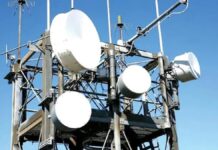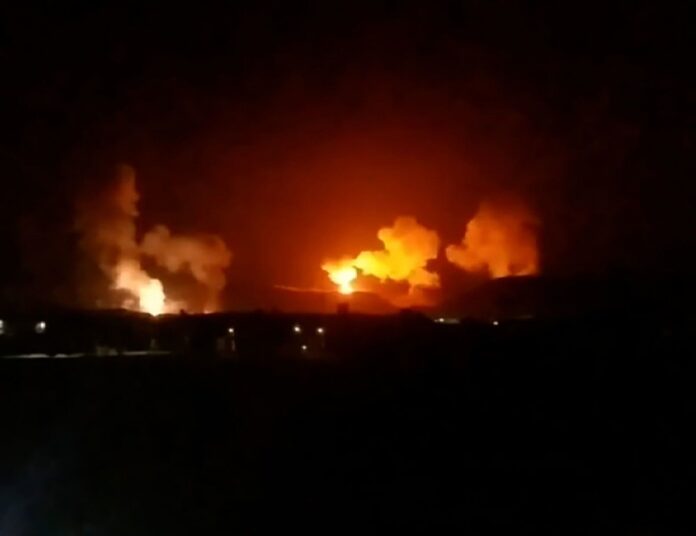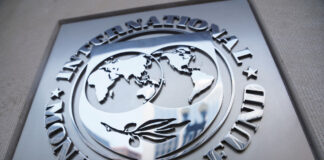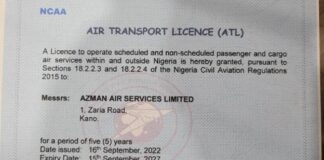U.S., Britain Carry Out Strikes Against Houthis in Yemen
The United States and Britain carried out strikes from the air and sea against Houthi military targets in Yemen overnight in response to the movement’s attacks on ships in the Red Sea, a regional widening of the Israeli-Hamas war in Gaza.
Witnesses in Yemen confirmed explosions throughout the country, saying raids targeted a military base adjacent to Sanaa airport, a military site near Taiz airport, a Houthi naval base in Hodeidah, and military sites in Hajjah governorate.
“These targeted strikes are a clear message that the United States and our partners will not tolerate attacks on our personnel or allow hostile actors to imperil freedom of navigation,” U.S. President Joe Biden said in a statement.
Britain’s defence ministry said in a statement that “early indications are that the Houthis’ ability to threaten merchant shipping has taken a blow.” James Heappey, a junior defence minister, said the strikes were in self-defence and no further action was planned for now.
A Houthi military spokesperson said 73 strikes had killed five of the group’s fighters and wounded six others.
The attacks would not go without “punishment or retaliation” and the group will continue to target ships headed for Israel, he said.
The Houthis, an armed movement that took control of most of Yemen over the past decade, have been attacking shipping at the mouth of the Red Sea – one of the world’s busiest trade lanes – since October.
The action is in support of Hamas, they say.
The United States and its allies have deployed a naval task force to the area to protect ships, and U.S. and British warships shot down 21 drones and missiles on Tuesday to repel the biggest Houthi attack so far.
Iran, which supports armed groups around the Middle East including both the Houthis and Hamas, condemned the U.S. and British attacks.
A Houthi spokesperson said there was no justification for the attacks.
U.S. Defense Secretary Lloyd Austin, who is in hospital due to surgery complications, said in a statement that the strikes targeted Houthi drones, ballistic and cruise missiles, coastal radar, and air surveillance.
A Houthi official confirmed “raids” in the capital Sanaa along with the cities of Saada and Dhamar as well as in Hodeidah governorate, calling them “American-Zionist-British aggression.”
Russia requested an urgent meeting of the UN Security Council.
The Houthi attacks have disrupted international commerce, forcing some ships to take the long route around southern Africa, an increase in delivery costs and time that stoked fears of a new bout of global inflation.
The price of oil rose sharply on concern that supplies could be disrupted. Brent crude rose 2 dollars.
The U.S. said Australia, Bahrain, Canada, and the Netherlands supported the operation, part of an international effort to restore the free flow of trade.
The route, which links Europe, Asia, and Africa via the Suez Canal, accounts for about 15 per cent of the world’s shipping traffic.
The strikes, the first by the United States on Yemeni territory since 2016, were a clear demonstration of Washington’s struggle to contain the fallout of the Israeli-Hamas war since it broke out in October.
“The concern is that this could escalate,” said Andreas Krieg at King’s College in London.
Saudi Arabia called for restraint and “avoiding escalation”.
The Saudis have backed the opposing side in a war against the Houthis for nearly a decade, which has been in a delicate state of peace negotiations.
The United States also accused Iran of being involved operationally in the Houthi attacks, providing the military capabilities and intelligence to carry them out.
“We believe that they have been certainly involved in every phase of this,” a senior U.S. official told reporters.
Israel has mounted a military assault that has killed more than 23,000 Palestinians in Gaza after Hamas fighters attacked Israel on Oct. 7, killing 1,200 people and seizing 240 hostages.
The three months since have also seen violence escalate in Lebanon and the Israeli-occupied West Bank, as well as in Syria and Iraq, both flashpoints where armed groups backed by Iran operate and the United States has troops on the ground.
Iraq’s state news agency quoted an advisor to its prime minister as saying the West was expanding the conflict.
The strikes on Yemen were carried out by aircraft, ships, and submarines.
A U.S. official said more than a dozen locations were targeted and the strikes were intended to weaken the Houthis’ military capabilities, as opposed to being just symbolic.
“We were going after very specific capability in very specific locations with precision munitions,” a U.S. military official said.
The Houthis have defied a call by the United Nations to halt their missile and drone attacks on Red Sea shipping routes and warnings from the United States of consequences if they failed to do so.
Hours before the U.S. and British strikes in Yemen, the U.S. military said the Houthis had fired an anti-ship ballistic missile into international shipping lanes in the Gulf of Aden. NBS And The Task of Delivering Reliable National Data
On Jan. 9, U.S. and British naval forces shot down 21 Houthi drones and missiles.
Biden said they had directly targeted American ships.
The Houthis said it was in part retaliation for a New Year’s Eve incident when U.S. helicopters sank three Houthi boats, killing fighters who were attempting to board a commercial vessel.




























































































